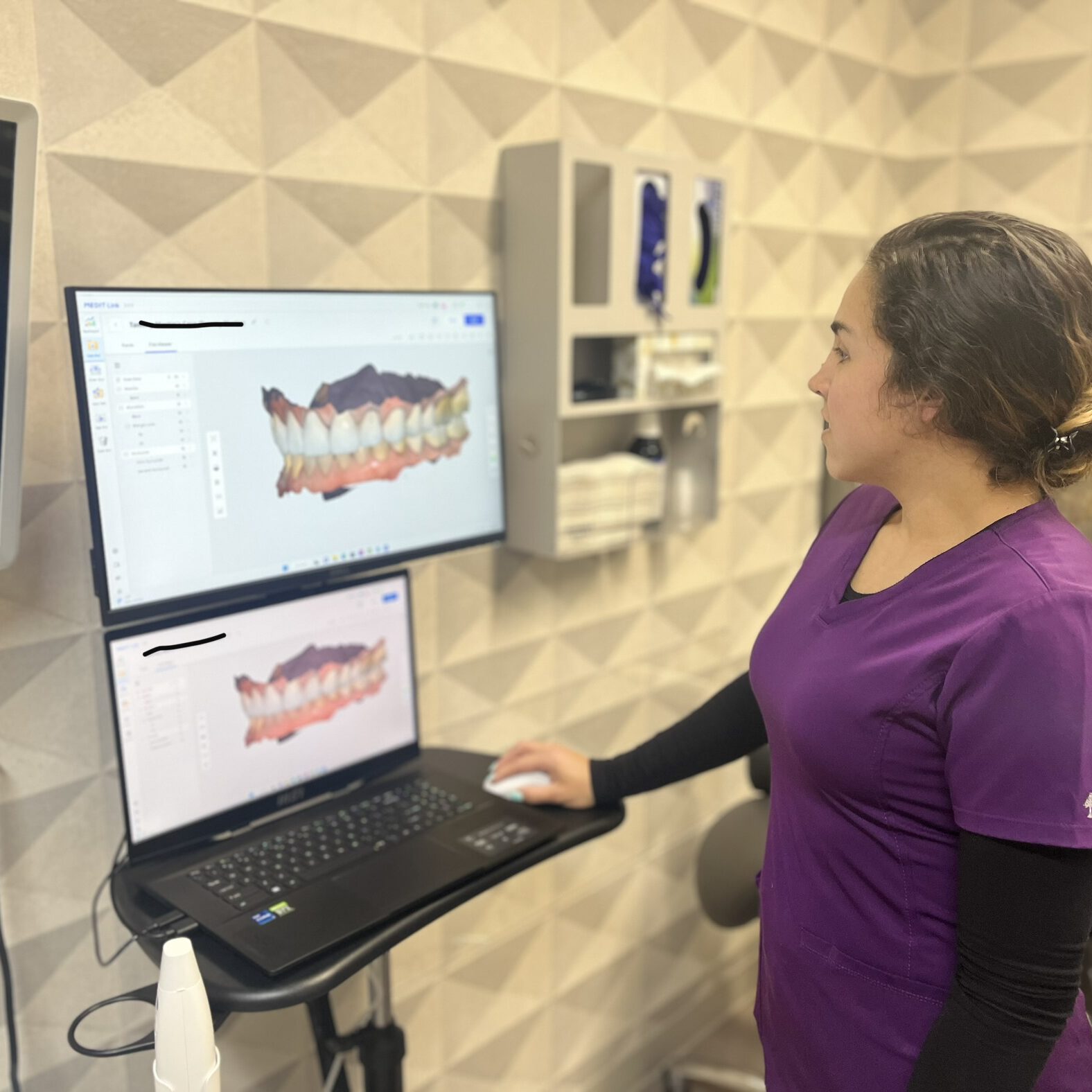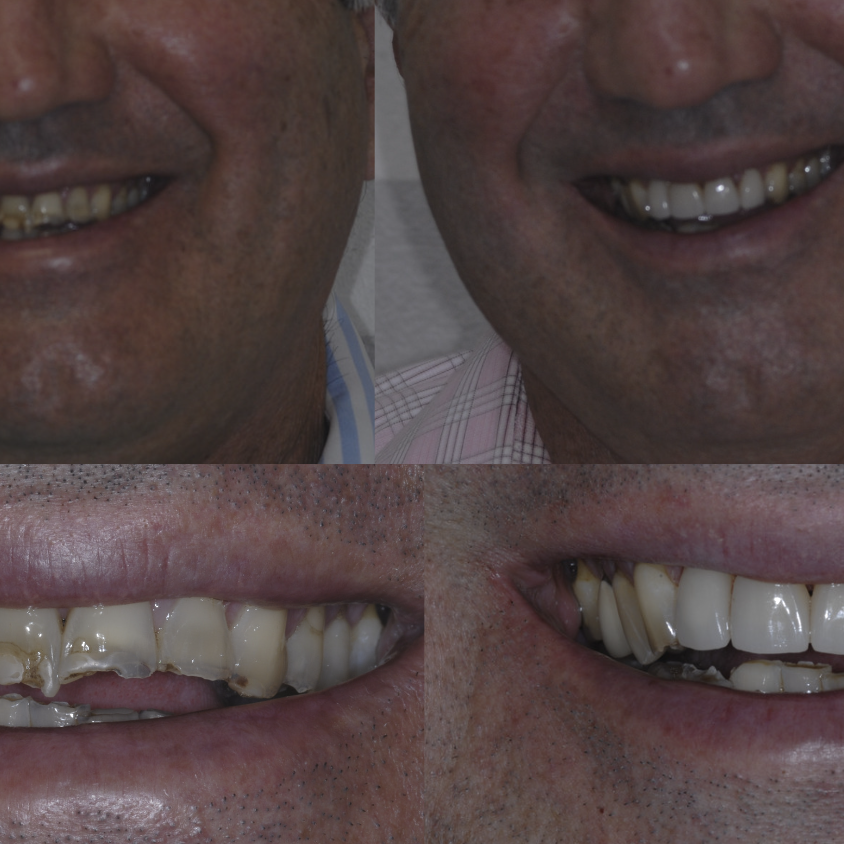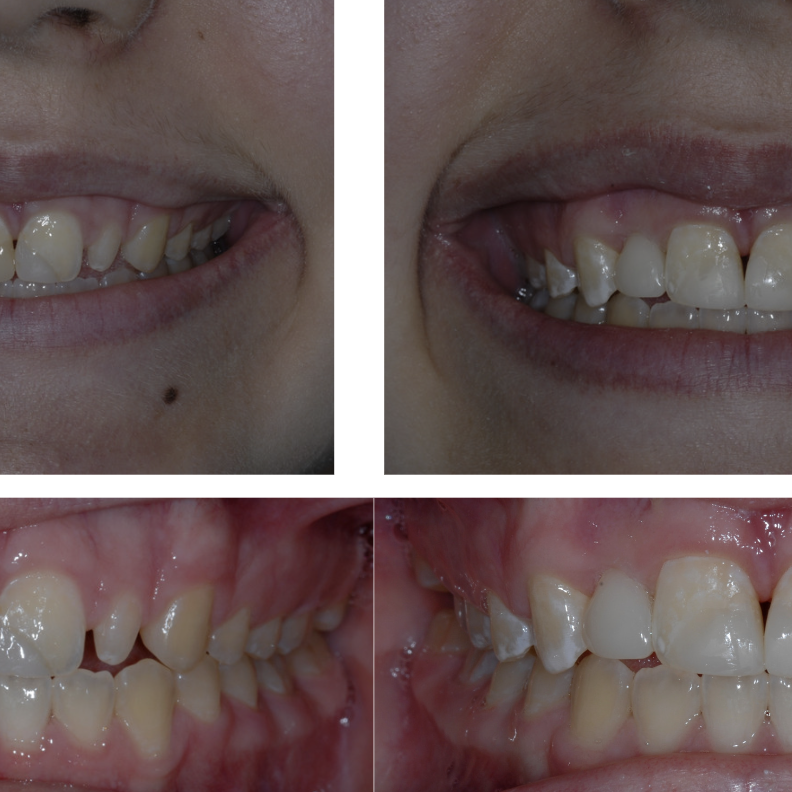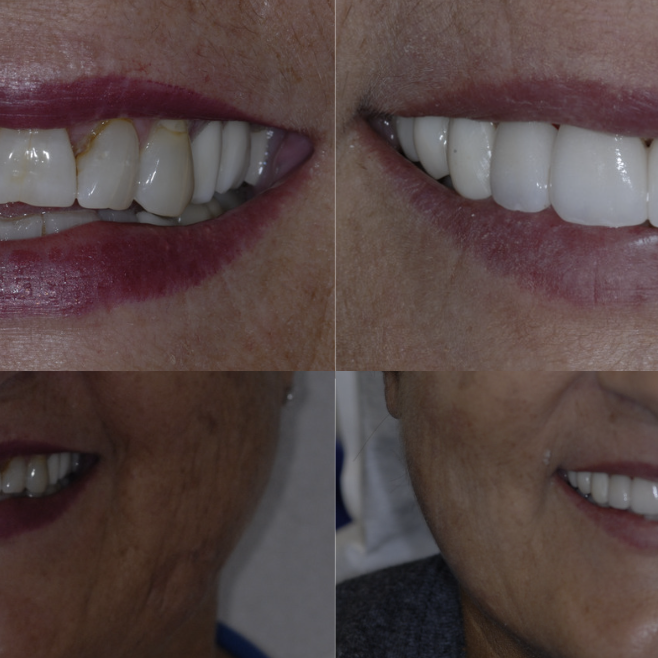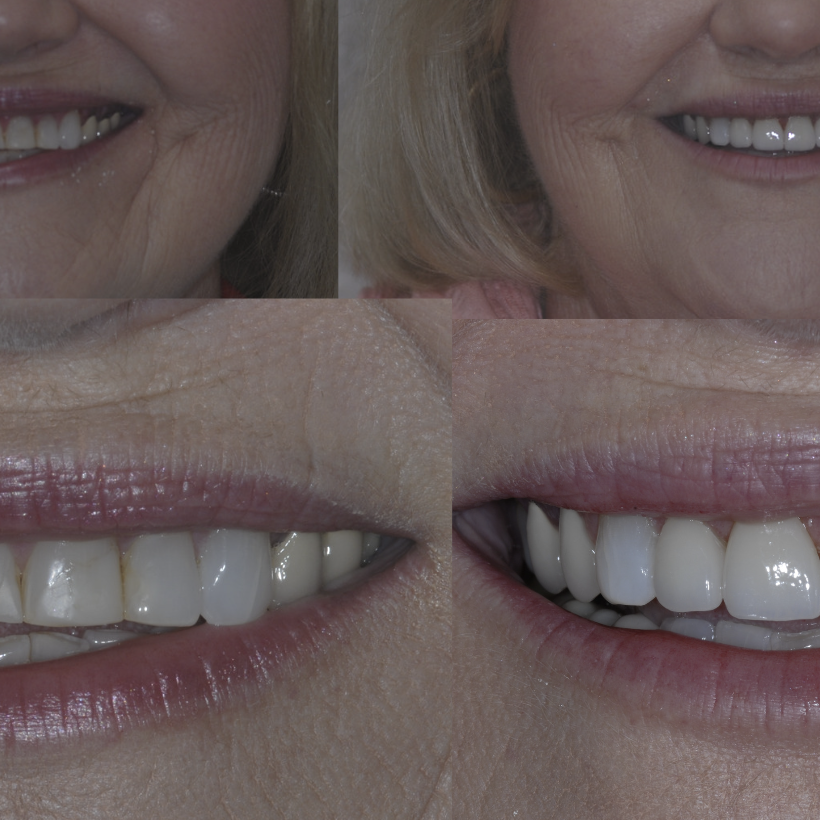Composite veneers are a more affordable alternative to ceramic veneers. These restorations consist of a tooth-colored plastic-like material that bonds permanently to the tooth. Depending on how many teeth are done and how much time is scheduled, they can be completed in a single visit. Whitening and brightening, correcting misalignment, and altering shape can still be accomplished with composite veneers. Generally, composite veneers are less durable and have a less lifelike appearance than ceramic veneers, but are significantly more affordable.
VENEERS
Business
REVIEWS
TECHNOLOGY
Veneers in Roanoke
Veneers are for the patient who wants a picture-perfect smile. By using veneers, your dentist can brighten and whiten your smile, correct small variations in alignment. and change the shape of your teeth. Patients commonly opt for veneers on the upper front 4-8 teeth, though veneers also work well on lower teeth. There are a couple different types of veneers, and each has their unique advantages and disadvantages. Dr. A. Wharton Ramsey and Dr. David W. Irby have years of experience helping patients achieve their dream-smile using veneers.
Ceramic Veneers
Ceramic veneers (aka porcelain veneers) offer the highest esthetic outcome. Your dentist will lightly prepare the teeth with minimal reduction of the facial (cheek side) enamel. Then we will make an impression, take photographs, and send the case to a dental ceramist. The ceramist will match the color shade and shape of the teeth to your preferences and return the set of veneers. At a second visit, your dentist will permanently cement (or seat) the ceramic veneers on to your teeth.
Lumineers
Lumineers are a type of ceramic veneer that do not require tooth reduction. In
Composite Veneers (aka Resin Veneers or Bonded Veneers)
How much do veneers cost?
The cost for veneers varies based on several factors. Veneers are normally billed per tooth, so getting veneers on the front eight teeth is twice as expensive as doing the front four teeth. As mentioned above, composite veneers are significantly less expensive than porcelain veneers. The price per composite veneer may also fluctuate depending on whether the tooth has decay or not. A ballpark fee for a composite veneer is $300-500 while a porcelain veneer is $900-1300 per tooth. If you have dental insurance, check to see if there is coverage for cosmetic procedures. The specific dental insurance codes are D2960-D2962. If you have questions, please give us a call. 540 342 6800
Photo Gallery
5 Star Patient Reviews
Get in Touch!
Frequently Asked Questions
How much do composite veneers cost?
Composite veneers may cost $500-$1200 per tooth
How long do composite veneers last?
Composite veneers may last up to ten years, however often staining, chipping or wear can occur after only 1-2 years. These changes can sometimes be fixed without replacing the entire composite veneer.
What is the difference between resin and porcelain veneers?
Resin veneers (also known as composite veneers) are bonded to the tooth and are shaped chairside by your dentist. Porcelain veneers (also known as ceramic veneers) are fabricated outside of the mouth by a lab technician. Porcelain veneers are more durable, more lifelike, and more esthetic than resin veneers.
Do composite veneers ruin your teeth?
Composite veneers do not ruin a tooth, but sometimes the treatment is not reversible. Composite veneers are bonded to tooth enamel. In some cases the composite is simply added to the tooth and no tooth enamel is removed. This is a reversible treatment, since the composite could be removed from the tooth later. Other times enamel is removed so that corrections to rotation, angulation or color can be made. In these cases, the treatment is not reversible.
Are composite veneers worth it?
Composite veneers are a quick and relatively inexpensive way to achieve improved cosmetics of the smile. They are, however, prone to wear and discoloration over time, especially in comparison to ceramic veneers.







